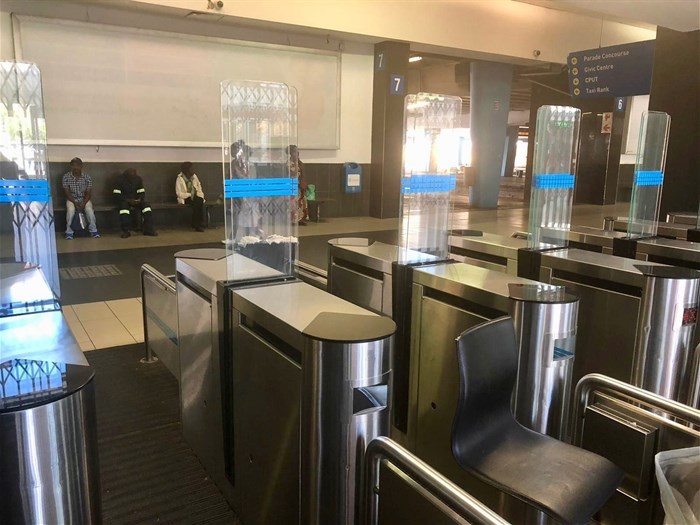






The Supreme Court of Appeal (SCA) has dismissed with costs a bid by Siyangena Technologies Pty Ltd to overturn a finding by the Pretoria High Court that it was complicit in corruption when it scored contracts valued at about R5.5bn from the Passenger Rail Agency of South Africa (Prasa).
The SCA on Tuesday ruled that the company was not an “innocent party”, as it claimed, and that it would be “inconsistent with the notions of justice and equity” if it were allowed to profit from the unlawful procurement contracts.
The court also affirmed that the high court was correct in ordering that an independent engineer be appointed to assess the financial value of the work done by Siyangena to determine if it should pay back any money.
The contracts, the high court found, had been awarded to the company during the “tyrannical” reign of former Prasa Group CEO Lucky Montana ahead of the 2010 Soccer World Cup and afterwards.
The contracts were for the supply and maintenance of “integrated security access management systems” at various train stations. The equipment included public address facilities, speed gates and electronic display boards intended to make the public rail commuter system safer and more efficient.
The high court found that the contracts were tainted by corruption, that representatives of Siyangena had held private meetings with Montana, that proper procurement processes were not followed, budgetary concerns raised by Prasa officials were ignored, and documentation was “manipulated” to hide the malfeasance.
It reviewed and set aside the contracts, deeming them to be unlawful.
SCA Acting Judge Mahendra Chetty, who penned Tuesday’s ruling, said in the appeal that Siyangena had, in the main, taken issue with the remedial order.
“It contends that it is inconsistent with the Constitution because, so it claims, it was in the position of an innocent party. As a result, it ought not to be stripped of any rights it would have been entitled to under the contract, but for the declaration of invalidity.
“In written argument, it conceded that it could not contest the high court’s numerous findings that Prasa had failed to comply with the requirements of the procurement processes in respect of the three contracts. Rather, its position is that at all times it had no knowledge of the internal workings of Prasa and was just an innocent contracting party and not complicit in the malfeasance.”
Judge Chetty said it was a newly constituted board of Prasa which had approached the high court to have the contracts set aside after Montana had resigned “under a cloud” in July 2015.
Siyangena had contended that it was seriously hamstrung in demonstrating its innocence because the high court had wrongly decided to disregard affidavits made by certain witnesses, including those who had been implicated in the wrongdoing.
Judge Chetty said the high court had been correct and it was entitled, by law, to disregard the affidavits.
He said where there was evidence of corruption, an order declaring the contracts unconstitutional ought to follow.
“The factual findings by the high court display that there was a concerted effort to debase almost all aspects of the procurement process … to the benefit of Siyangena.
“The high court inferred an existence of corruption … that remains the only plausible inference. Nothing has been placed before us which warrants disturbing that finding,” Judge Chetty said.
He said in spite of the high court’s view that Siyangena was not the innocent contractor it had proclaimed to be, the high court had devised a remedy deemed to be fair to both parties.
It directed that an independent engineer be appointed to value the works carried out. If the company had been underpaid, then Prasa would be obliged to make good on the shortfall. Conversely, if it had been overpaid, it would be obliged to pay the money back.
Commuter activist group #UniteBehind was admitted to the appeal application as an amicus curiae and it had joined issue with Prasa in opposing any alteration to the remedy.
“In my view, Siyangena did not show that the high court had failed to exercise its discretion judicially ... or that it was at odds with the law,” Judge Chetty said.
“Siyangena was rightly found by the high court to have been complicit to the corruption, impropriety and maladministration. It is inconsistent with the notions of justice and equity that it should be allowed to profit from the unlawful procurement contracts.”
“The appeal must fail,” he said, ordering the company to pay the costs of the application.
This article was originally published on GroundUp.

GroundUp is a community news organisation that focuses on social justice stories in vulnerable communities. We want our stories to make a difference.
Go to: http://www.groundup.org.za/